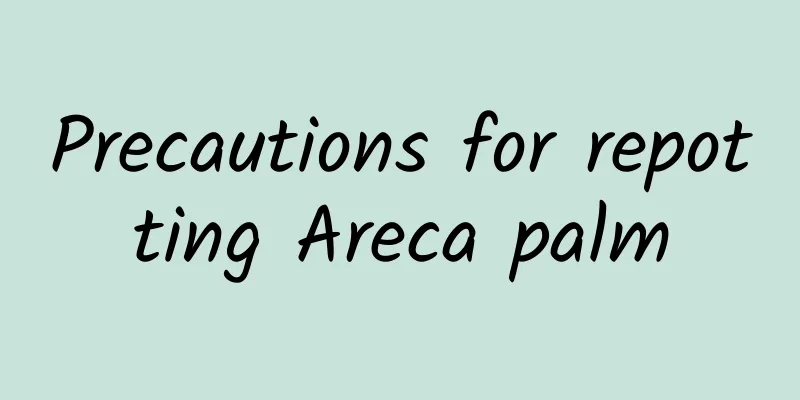How to grow potted Japanese cherry blossoms

1. Choice of potting soilIf you want to plant it in a pot well, you must first choose the right soil. Generally, we can use leaf mold that we prepare ourselves, such as some leaves, some acidic soil, and some chicken manure, so that the leaf mold is ready. The reason why I prepare it myself is mainly because homemade leaf mold has good drainage and air permeability, which is very suitable for its growth. 2. Timely pruningWhen pruning it, we must pay special attention to the time of pruning. Generally, we cut off the inner branches, dead branches, thin branches, diseased and insect-infested branches before and after flowering, so that they will not consume excess nutrients. After pruning, we also need to apply preservative to it to prevent the wound from rotting, which will also make it heal faster. 3. Watering should be reasonableIt is very afraid of stagnant water, so you must be careful when watering it. We can water it appropriately according to the different seasons and the size of the seedlings. When watering, the soil must not be too wet, otherwise its roots will rot. Once the roots rot, it will affect its flowering if it is light, and it will kill it if it is severe. Therefore, it can be seen that it is very important to control the amount of watering. 4. Fertilization should be appropriateWhen fertilizing it, the amount must be sufficient to ensure that it has the nutrients it needs for growth and development, making the entire plant look lush and its flowers exceptionally bright. Generally, liquid fertilizer should be applied to it once a week. The fertilizer should mainly be nitrogen fertilizer, which can promote its nutritional growth. Then in the later stage, some phosphorus fertilizer should be applied reasonably to promote the formation of more flower buds. After that, apply fertilizer again before and after flowering, which will lay a good foundation for flowering in the second year. 5. Prevent the occurrence of diseases and pestsWhen raising it, some diseases and pests are inevitable, which will directly affect the growth of the plant, so we must prevent and control it in time to facilitate its better growth. |
<<: How to breed Silver Fingers
>>: Cultivation methods and precautions for orchids
Recommend
Water planting flowers, clean and easy to grow
Water-planted green radish Procedure It is also q...
Cultivation methods and precautions of creeping grass
1. Breeding methods 1. Soil: It is extremely resi...
The cutting method and precautions of Tiger Pilan
The cutting method of Tiger Piranha is very simpl...
How long does it take for celery to grow?
Introduction to Celery Growth Celery likes to gro...
Leo's Guardian Plant - Miniature Coconut Tree
The role of miniature coconut The miniature cocon...
When is the best time to plant chive seeds?
Leek seed planting time Chives are a perennial he...
The fastest way to root wintersweet cuttings
Wintersweet cutting time The cutting time of wint...
How to grow ginseng banyan bonsai, ginseng banyan bonsai pictures
1. How to grow a ginseng banyan bonsai Soil: The ...
What fertilizer is best for potted money trees?
1. Nitrogen and Potash Fertilizers There are two ...
How to breed the Queen of the Cliff
Cliff Queen Growing Conditions The Queen of the C...
How to grow blueberries overwintering in the north? Can blueberries be grown outdoors in the north in winter?
Protecting Northern Blueberries from the Cold Blu...
Cultivation methods and precautions for orchids
Dormant period maintenance Because the temperatur...
How to propagate Calceolaria
Seed propagation The best time to propagate Calce...
When to take cuttings of Bauhinia tree
1. Which month will it be held? The Bauhinia tree...
What to plant to make money in 2022 (What medicinal herbs to plant in rural areas to make money without worrying about sales)
Since the beginning of 2021, the prices of more t...









